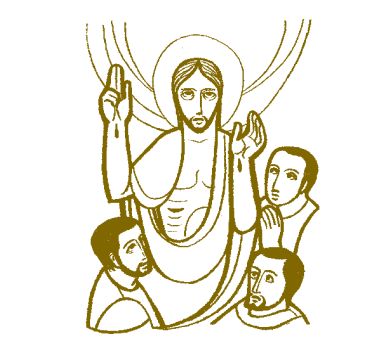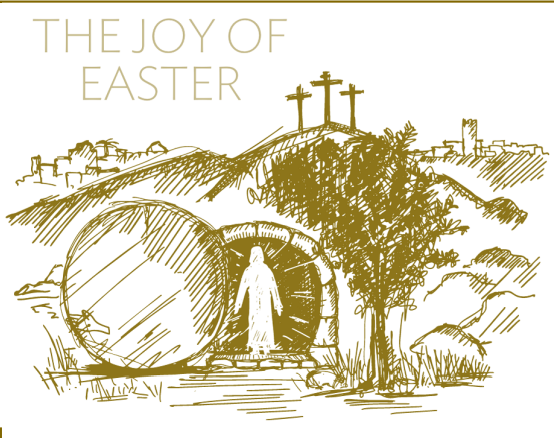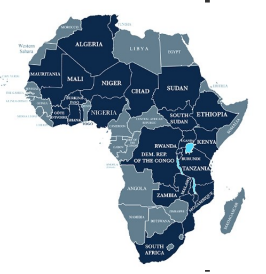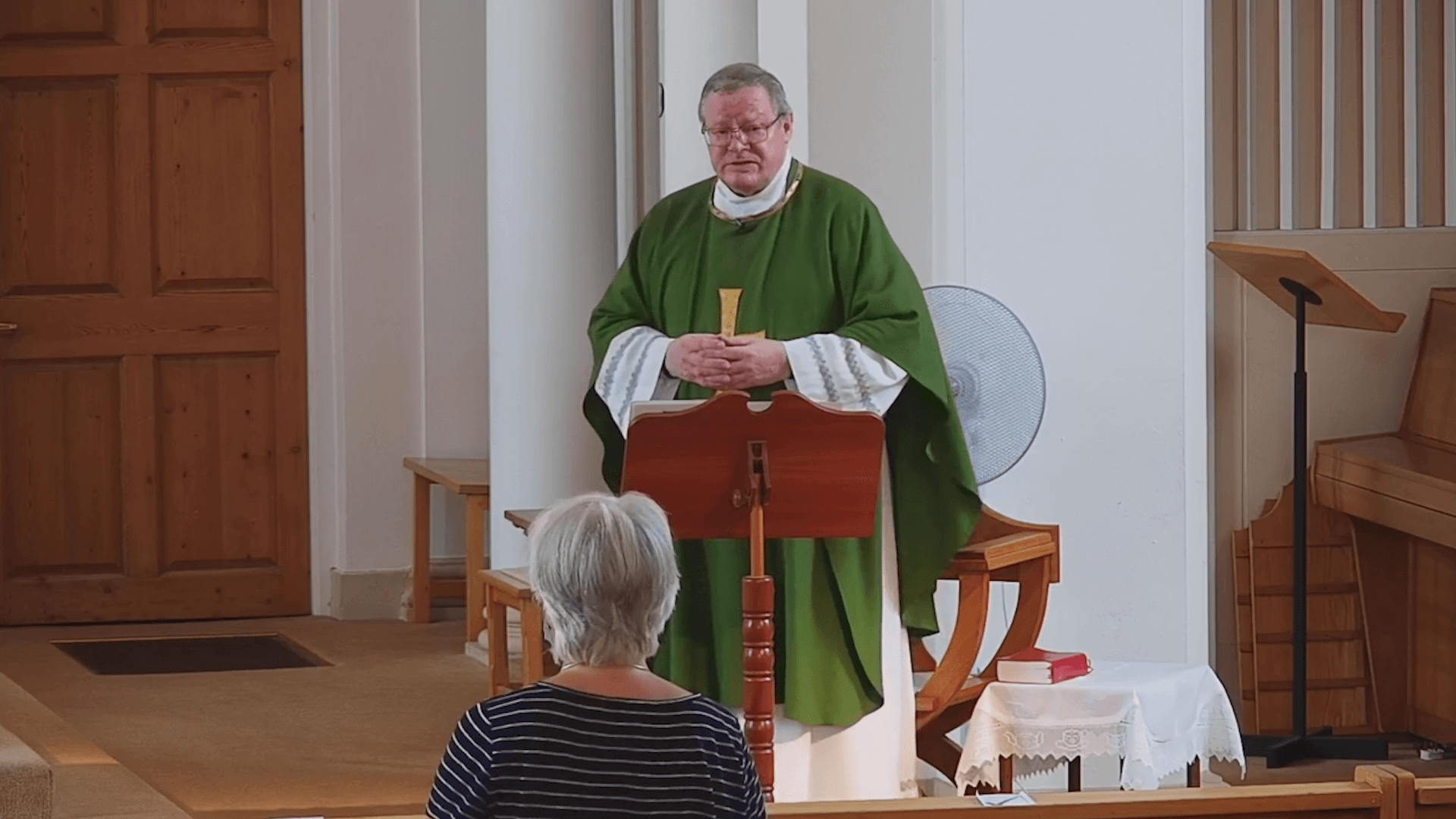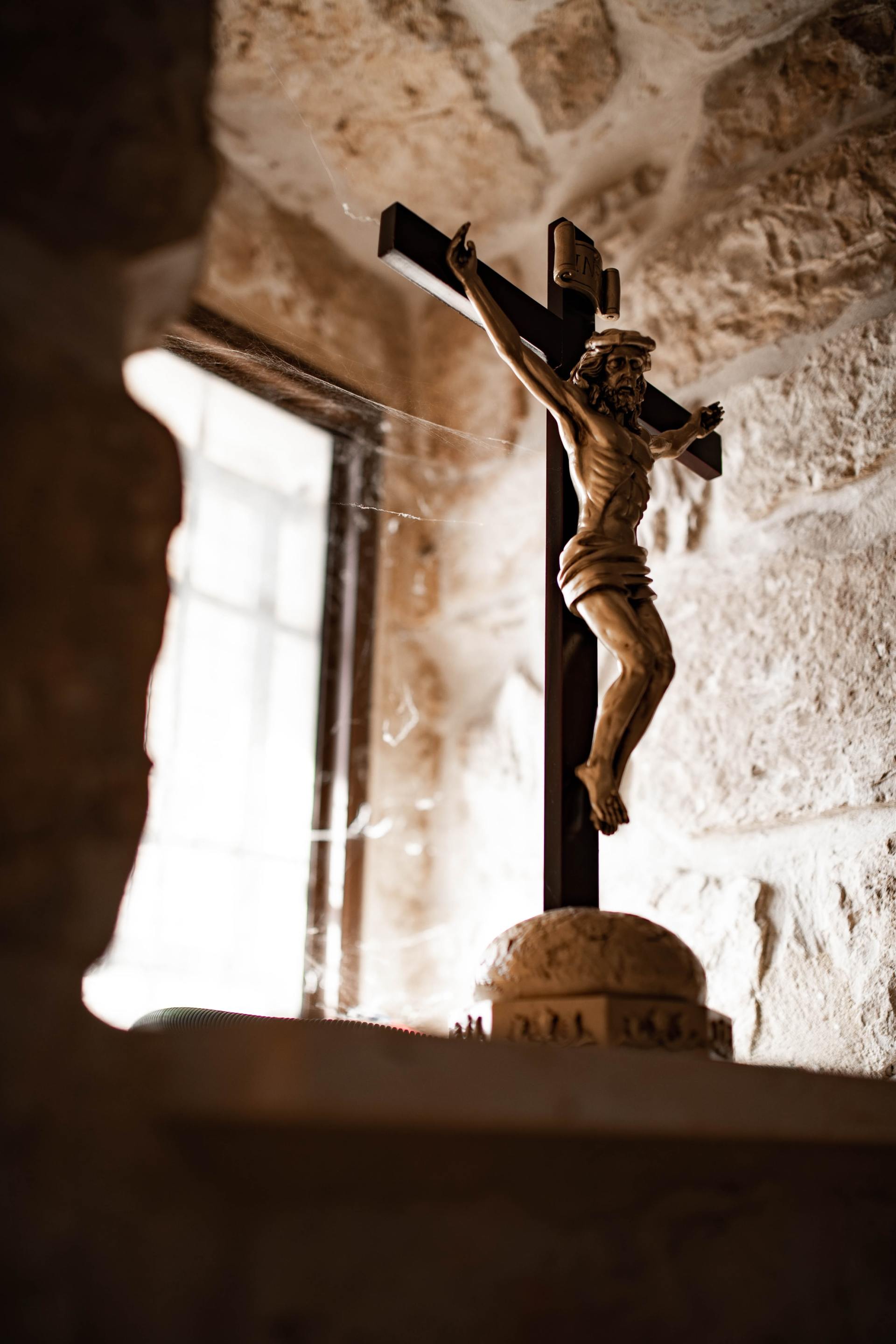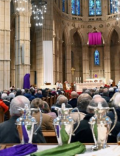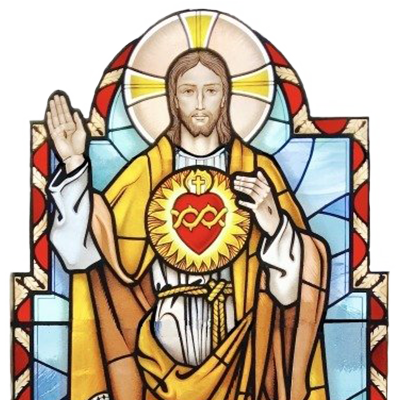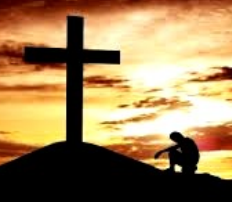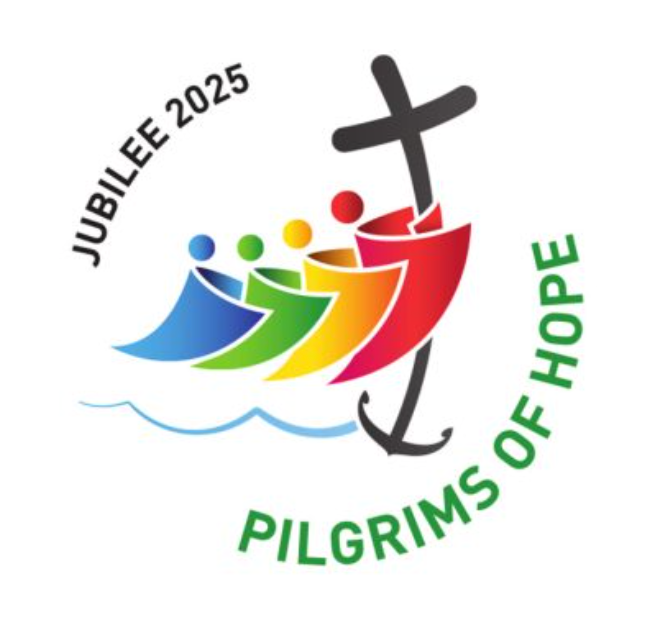Sunday 13th March 2022
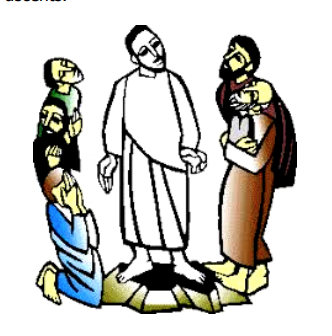
Luke describes Jesus’ transfiguration as happening “while he was praying,” emphasising the power of prayer to mediate the presence of God and the consequent transformation of the one who prays. Jesus is joined by two of his ancestors, Moses and Elijah. The first of these, Moses, had to cope with his people who frequently grumbled about their exodus out of Egyptian slavery and into freedom. After spending forty days on Mount Sinai where God had called him to receive the divine teaching, Moses was transformed by his encounter and his face had become so radiant that when he came down from the mountain to his people, he needed to veil himself lest his brightness blind them (Ex. 34:29- 35). Elijah had encountered God in the silence outside the cave on Mount Horeb/Sinai after his forty-day flight from Jezebel, his too vicious slaughter of the false prophets she favoured, and his arrogant ignoring of the other hundred true and hidden prophets of God (1 Kgs. 18-19).
The glory of the transfiguration eventually penetrates the fog of sleep that resulted from the disciples’ mountain climb. As it will be in Gethsemane, such sleep is the faithless opposite of watching and praying - a reality with which we may be all too familiar. As Moses and Elijah leave, Peter has what he considers his own moment of dazzling brilliance. He does not want to take any holy risks. A safer, more familiar solution, he suggests, would be to ‘house’ the glory of Jesus, Moses, and Elijah in three tents (or tabernacles) set up on the mountain. As observant Jews, Jesus and the disciples had all celebrated the feast of Tabernacles/Booths from their childhood. That feast commemorates not only the wilderness wandering of Israel when the people lived in fragile, portable tents, but also the later dwelling of the cloud of God’s glory, the Shekinah, in the Jerusalem temple. We have often been very pious about Peter’s words, “Master, it is good for us to be here,” but inattentive to Luke’s following comment that Peter did not know what he was saying. Jesus’ disciples are never to be frozen in the familiar. For Peter, James, and John, there is another mountain to be climbed, another transfiguration in blood and pain to be experienced before the glory of the resurrection is revealed.
Then God, not Peter, takes the initiative - tenting over Jesus and the disciples with divine glory, overshadowing them with a cloud, and calling them into its mystery. Over Moses on Mount Sinai, over Daniel’s Son of Man, over Mary of Nazareth, the cloud was witness to and symbol of God’s transfiguring presence. Now it embraces the tabernacle of Jesus’ body and those who are his companions. Terrified, they enter and hear the Father’s assurance, given only to Jesus at his baptism but now announced to disciples of all times: “This is my beloved Son; listen to him.” Then there is silence, and Jesus alone is with them. They will go down from the mountain, onto the plain; and the struggle to understand Jesus goes on. On the plains of our everyday life, we struggle to respond to the Father’s command: to listen to the Son, to become children of the light in his light, brothers and sisters who are ready to risk the unfamiliar and new because we are enveloped in the security of God’s presence and promise. After the mountain of Jesus’ transfiguration comes the hill of his crucifixion. Our pilgrim legs have to be strong for both climbs, and though we may not always recognise it, the ‘mountaintop’ experiences are often occasions where God allows us to catch our breath for the next and harder ascents.
